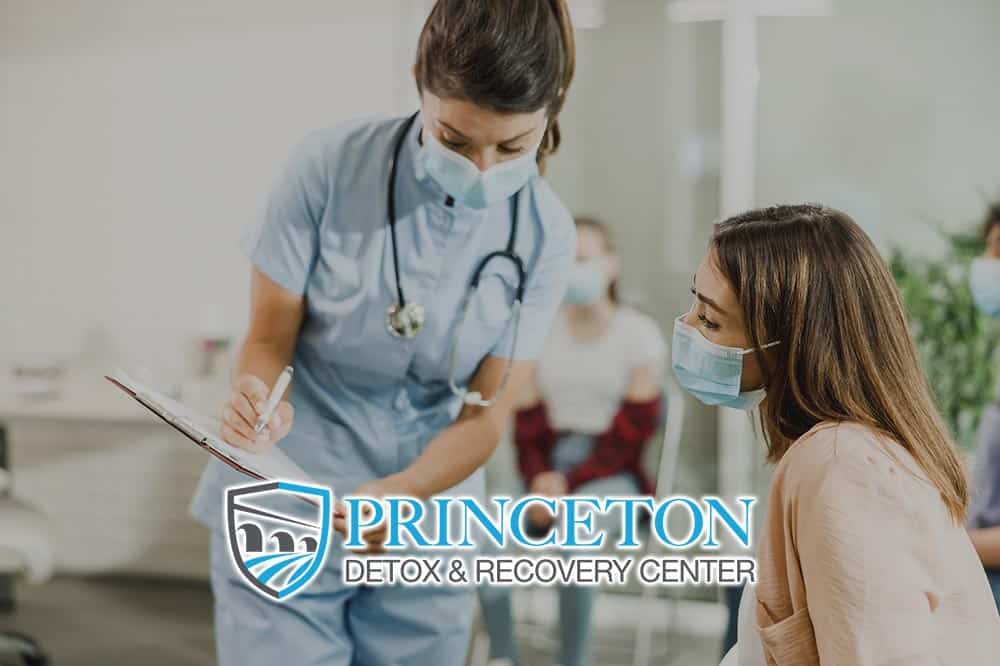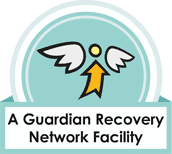Medical Detox Services
in Camden, New Jersey
If you or someone you love has been struggling with a drug or alcohol addiction and is currently living in Camden, New Jersey, Princeton Detox & Recovery Center is available to help. In response to the statewide opioid crisis and additional substance use throughout the state, we have developed and maintained a medical detox program that is both effective and accessible. Camden, the 14th most populous municipality in the state, has been particularly hard hit by increasing rates of opioid use, dependence and overdose. In addition to providing detox services for those struggling with opioid use disorders, we treat symptoms of alcohol, benzodiazepine, and stimulant drug withdrawal. Regardless of what it is you have been struggling with, we are available to help you. At Princeton Detox & Recovery Center we do more than help you or your loved one work towards physical stabilization. We actively prepare you to take the next step in your personal journey of addiction recovery. Contact us today to learn more.
What Is Medical Detox?
If you or someone you love has been suffering at the hands of a substance use disorder, entering into a medical detox program is an important initial step on the road to recovery. What is medical detox, and why is it so important? When a person develops a physical dependence on a chemical substance, they experience withdrawal symptoms when they suddenly stop using the substance. These symptoms can be psychological and physical in nature, and can pose a serious threat when they are left untreated.
At Princeton Detox & Recovery Center we effectively treat all symptoms of withdrawal while adequately preparing our clients for the next step on the road to long-term recovery. It is important to acknowledge that detox serves as a vital first step, but in order for sobriety to be maintained it must be closely followed by a higher level of care. When you are admitted to our inpatient detox center you will begin working with a case manager and the remainder of your treatment team to come up with a viable and personalized plan of action. To learn more about our medical detox in Camden or to begin your personal journey of recovery, contact us today.
Medical Detox Steps
What steps are involved in the medical detox process? Though it might seem like a given, the first and most important step is acknowledging that professional help has become necessary. Once you make the decision to reach out for help, you will be guided through the remainder of the detox process.
In most cases, the steps involved in medical detox look like this:
- Find a detox center in Camden, New Jersey that aligns with your personal needs.
- Reach out to the detox center and determine a date and a time for your intake.
- When you arrive at the facility, undergo a detailed addiction assessment.
- Relax in your bedroom as you undergo drug and/or alcohol withdrawal. As symptoms develop, they will be medically treated by our team of licensed medical professionals, ensuring safety and comfort during every stage of the process.
- When you feel up to partaking in the services we provide, you are encouraged to engage in individual and group therapy, group workshops and holistic treatment options.
- You work directly with your assigned case manager, who helps you develop a personalized aftercare plan and serves as a liaison between the treatment team and your loved ones.
- Once you have been physically stabilized, you transition into the next appropriate level of clinical care.
To learn more about the steps involved in the medical detox process, contact us today.
What is Inpatient Treatment?
In most cases, inpatient treatment comes as a recommended next step. Once you have been physically stabilized in a medical detox setting, you will transition into the next stage of treatment where you will begin to heal on a mental and emotional level. Active addiction negatively impacts all areas of life, from your interpersonal relationships to your career, financial security, and overall quality of life. While in inpatient treatment you will undergo intensive individual and group therapy. You will explore why you turned to drugs and alcohol in the first place. You will be taught a range of relapse prevention techniques, geared towards helping you stay sober long after treatment concludes.
Inpatient treatment typically lasts for between 30 and 90 days, depending on the severity of the substance use disorder and the presence of any underlying, co-occurring disorders. How do you know which inpatient treatment program in Camden is right for you?
There are several questions we recommend asking yourself, including:
- Am I looking for a gender-specific treatment program, or a program that caters to another demographic (like working professionals or the LGBTQ+ community)?
- Am I willing to travel out of state for rehab, or would I prefer to find a treatment center in New Jersey?
- Does the inpatient rehab accept my current health insurance?
- Am I looking for a drug rehab that works with individuals who have co-occurring disorders, like mental illness or unresolved trauma?
- Is the treatment center licensed, accredited and run by a team of experienced medical and therapeutic professionals?
We Are Here For You
Let Us Help You Heal
Our Drug & Alcohol detoxification experience is second to none.
Learn how we can help by speaking with one of our Treatment Advisors today.
Residential Treatment Programs
Is there a difference between inpatient treatment and residential treatment? The two terms are used interchangeably, and they both refer to a clinical program that houses its clients in a residence for the duration of the treatment process. There are many reputable residential treatment programs in Camden — and throughout the rest of the country. As part of the Guardian Recovery Network family, we are happy to find a treatment center that meets all of your personal needs.
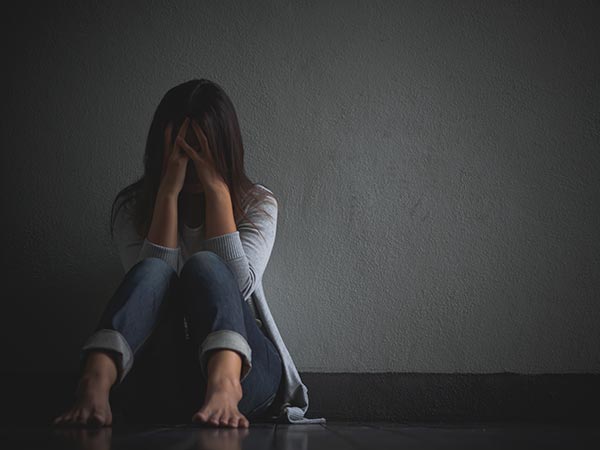
Outpatient & Aftercare
While residential treatment often comes recommended, it is not the best option for everyone. Depending on your personal circumstances you might benefit more from transitioning directly into an outpatient program after detox. This could be the case if:
- You have been struggling with a mild substance use disorder and no underlying issues.
- You are the sole caretaker of one or more dependents.
- You have a career that you cannot easily step away from for weeks at a time.
- You have been through the treatment process before, and experienced a short relapse.
Outpatient treatment often serves as a step-down level of care once a person has completed medical detox and residential rehab. Outpatient treatment provides more flexibility and personal freedom, and allows a person to slowly transition back into independent living while continuing to receive therapeutic care.
Drug & Alcohol Use in Camden
According to the 2019 New Jersey Substance Abuse Monitoring System, heroin use remains the largest drug-related problem faced by residents of Camden County. 45 percent of all treatment center admissions in 2019 were directly linked to heroin (this equated to 3,975 treatment center admissions in total). Alcohol was the second most common reason behind treatment center admissions, making up 25 percent in total.
In the year 2020, roughly 43 percent of all treatment admissions involved heroin as the primary drug (2,950), and 27 percent involved alcohol (1,875). Other areas of concern in Camden County include other opiates (like prescription painkillers and fentanyl), marijuana, and stimulant drugs like cocaine and methamphetamine.
However, heroin is clearly the biggest drug-related threat throughout Camden and surrounding areas. When it comes to heroin addiction recovery, entering into a medical detox center is an extremely important step. The symptoms associated with heroin withdrawal are often so uncomfortable that they lead a person back to use before the detox process is over. At Princeton Detox & Recovery Center we offer a safe, pain-free drug and alcohol detoxification while actively preparing clients for continued success in sobriety.
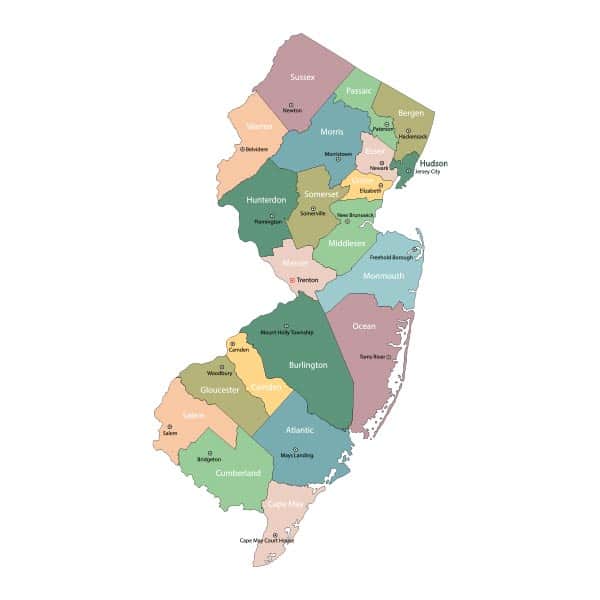
What to Expect from Drug & Alcohol Detox
What should you expect from the detoxification process? The answer to this questions depends heavily on what type of substance/substances you were using and for how long. In most cases, detox lasts for between three days and two weeks. Before admission to our Camden County detox center, you will undergo a detailed assessment which will help our medical team determine which treatment methods are going to be the most effective for your unique case.
Stimulant Detox
Stimulant drugs like methamphetamine, cocaine and prescription stimulants like Adderall and Ritalin can be highly addictive, and can lead to a wide range of serious personal consequences in a short period of time. When it comes to the symptoms of stimulant withdrawal, the psychological symptoms are often more severe and uncomfortable than the physical symptoms.
The most common symptoms of stimulant withdrawal include:
- Extreme fatigue.
- Insomnia.
- Intense anxiety and panic attacks.
- Depressed mood, which can lead to suicidal ideation.
- Drug cravings.
- Increased appetite, which can lead to temporary weight gain.
- Hallucinations, delusions and psychosis.
Psychological symptoms are the main reason why stimulant withdrawal requires medical detox. While all of the other withdrawal symptoms are extremely uncomfortable and can be sufficiently treated in a medical detox facility, psychosis can be life-threatening if not overseen around the clock by a team of medical professionals. Medications will be administered when appropriate, and clients will undergo intensive individual therapy sessions.
Benzodiazepine Detox
Benzodiazepines are most commonly prescribed for the treatment of moderate or severe anxiety-related disorders. They are also sometimes used for the treatment of insomnia or other sleep-related disorders, for the treatment of seizures and convulsions and finally, for the treatment of symptoms associated with alcohol withdrawal. Benzodiazepine withdrawal is not just highly uncomfortable, it can be extremely dangerous when not carefully overseen and treated by a team of experienced medical professionals.
The most common symptoms of benzodiazepine withdrawal include:
- Severe anxiety and restlessness.
- Irritability and agitation.
- Insomnia and other sleep-related disorders.
- Hand tremors.
- Muscle spasms.
- General aches and pains.
- Stomach issues like nausea, vomiting and diarrhea.
- Intense headaches.
- Profuse sweating/night sweats.
- Disillusionment and feelings of unreality.
- Hallucinations.
- Delirium.
- Depression and suicidal ideation.
- Grand mal seizures.
We utilize medication assisted treatment when necessary, ensuring that clients who have been suffering at the hands of a benzodiazepine addiction are never at risk of danger or discomfort. When our medical team finds tapering necessary, we slowly reduce the amount of benzodiazepines in a client’s system until they are physically stabilized.
Ready To Begin Your Detox?
Don’t let addiction control your life.
Call us today and let’s get you started on the path to a better you.
Opioid Detox
If you or someone you love has been using opioid narcotics for any length of time, you will experience symptoms of withdrawal upon abruptly ceased use. At Princeton Detox & Recovery Center we utilize numerous detoxification techniques to help alleviate these symptoms while making them as short-lived as possible.
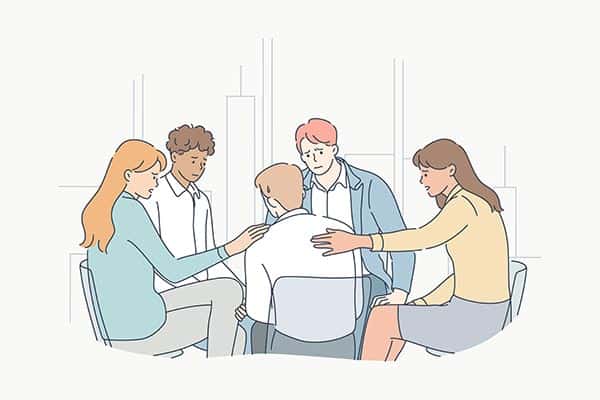
While the symptoms of opiate withdrawal are not generally life-threatening, they can be harshly uncomfortable when left untreated.
The most common symptoms associated with opioid withdrawal include:
- Agitation and irritability.
- Muscle aches and general physical discomfort.
- Disrupted sleep patterns/insomnia.
- Flu-like symptoms, such as runny nose, sweating and nausea.
- Increased yawning.
- Body tremors.
- Intense feelings of anxiety and/or depression.
In most cases the symptoms of opioid withdrawal resolve within one week, though the duration of symptoms might be longer depending on the severity of the substance use disorder.
Alcohol Detox
If you or your loved one has been struggling with an alcohol use disorder, medical detox is an important initial step on the road to recovery. The symptoms associated with alcohol withdrawal can be dangerous when left untreated, and can lead to life-threatening complications.
The most common symptoms associated with alcohol withdrawal include:
- Persistent headaches.
- Stomach issues like nausea, vomiting and diarrhea.
- Disrupted sleep patterns.
- Body aches and tremors.
- Heart palpitations and mild anxiety.
- Increased blood pressure and heart rate.
- Irritability and agitation.
- Severe anxiety.
- Seizures.
- Delirium Tremens (in severe cases of alcohol addiction).
The more severe symptoms of alcohol withdrawal should be closely monitored by a team of medical professionals as pharmaceutical intervention might become necessary. Some medications that might be utilized during the detox process include benzodiazepines, clonidine and anticonvulsant medications (to prevent seizures).
Get Help for Addiction in Camden
What steps can you take to get help for addiction in Camden County? Once you acknowledge help has become necessary, it is a good idea to reach out to a professional for guidance and assistance. At Princeton Detox & Recovery Center we have experienced and compassionate Treatment Advisors standing by to help you. Not only are they knowledgeable about our own program of recovery, but they can point you in the right direction if our program is not the best fit for you or your loved one.
Contact Us to Learn More & Get Started
The symptoms associated with drug and alcohol withdrawal can be extremely uncomfortable when left untreated. It is important to seek the care of a team of experienced medical professionals before associated symptoms peak in severity. At Princeton Detox & Recovery Center we effectively treat the symptoms associated with withdrawal while providing our clients with the tools they need to continue along on their personal journeys of addiction recovery. Getting started is as simple as reaching out for help. Once you make initial contact, either through our website or over the phone, you are put in touch with one of our experienced Treatment Advisors who will answer any additional questions and walk you through our simple admissions process. We begin by conducting a brief pre-assessment, which helps our medical team determine which detox methods are the best fit for you. We offer a free, no obligation insurance benefit check and arrange local transportation to our Camden County detox center. All you have to do is reach out for help and we will take care of the rest.

Reviewed for accuracy by:
Amanda Hilzer M.Ed, CAADC, IADAC, ICCS, LCADC, CCS
Amanda graduated from Lehigh University with both an undergraduate degree in Psychology and a Master’s of Education degree in Counseling Psychology and has worked in the field of substance use disorder treatment and mental health treatment as a counselor and as a clinical manager for over 14 years.














